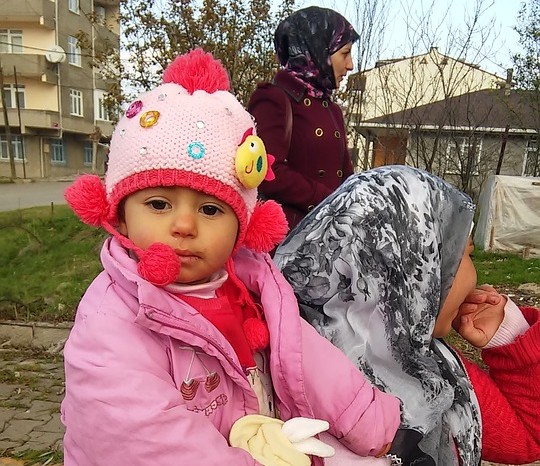Refugee Advocates Challenge the Safe Third Country Agreement, Responsible for Turning Away Asylum Seekers
For the second time since its introduction in 2004, the Safe Third Country Agreement will be challenged in the Federal Court of Canada. A bilateral agreement between Canada and the United States, the Safe Third Country Agreement establishes that those seeking refugee status in either Canada or the U.S. must do so in the first country they arrive in. In short, even if someone wishes to make a refugee claim in Canada, they become ineligible to do so if they step foot on U.S. soil first.
Given the current U.S. political atmosphere, including the U.S. government’s approach to refugees, many are questioning its utility and morals. This has culminated in a legal challenge against the Agreement which claims it violates asylum-seekers’ basic human rights.
Challenges at Border Crossings
The Safe Third Country Agreement is only enforceable at official Canadian-U.S. border crossing. As such, many asylum seekers have crossed into Canada at unofficial borders in search of a chance at a better life in Canada. These people often cross in dangerous conditions, risking their lives and limbs to get here.
The main challenge against this agreement is that the U.S. is indeed not a safe country for refugees. Some of the more egregious failings of the U.S.’ current refugee system include bars on claiming asylum if done outside of one year of arrival; expedited removals without hearings; detaining asylum-seekers for the duration of their claims process; turning back asylum-seekers at the U.S.-Mexico border (which is illegal under international law); and inconsistent adjudications across the country. As a result, many individuals with strong claims may nevertheless face the risk of a denied application, if not outright deportation, especially now that the Trump administration is enforcing anti-immigration policies.
For more information, read the brief from Amnesty International.
Legal Challenges to Agreement
On July 5, 2017, three advocacy groups joined a legal challenge against the Safe Third Country Agreement in Canada. Amnesty International, the Canadian Council of Churches, and the Canadian Council for Refugees are part of a court challenge filed by a woman from El Salvador whose asylum claim was automatically rejected at the Canadian border due to the Safe Third Country Agreement.
The woman and her two daughters fled from gang violence and death threats in El Salvador, landing in the U.S. in November 2016. She feared that they would be detained and deported had she filed a refugee claim in the U.S., so they continued to Canada. After their asylum claims were rejected, she filed a federal court challenge of the agreement. Her lawyers are working to keep her and her family in Canada for the duration of the court proceedings.
The first challenge to the agreement was in 2004, soon after it was introduced. A federal court judge ruled that the U.S. was not a safe country for refugees and the agreement should no longer exist. However, the Canadian government managed to successfully appeal this decision and the Supreme Court of Canada declined the appeal.
Hopefully, for the sake of this woman, her daughters, and all asylum-seekers who don’t feel safe in the U.S., this legal challenge will overturn the Safe Third Country Agreement. Too many asylum seekers have been risking their lives, especially in dangerous winter weather, for a chance to have their asylum claims heard. By overturning the Safe Third Country Agreement, Canada will uphold its international obligations and provide everyone who fears returning to their home the opportunity to be heard equally, regardless of how they arrived.
Share this article
Arghavan Gerami
Arghavan Gerami is the Founder and Senior Counsel at Gerami Law Professional Corporation ('PC'), a full-service immigration law firm in Ottawa, Ontario. Since 2011, Ms. Gerami has focused her practice on immigration and refugee litigation. Prior to that, Ms. Gerami worked at the Ministry of Attorney General and the Department of Justice and had the privilege of serving the Honourable Mr. Justice M. Evans at the Federal Court of Appeal on immigration and administrative law appeals. Ms. Gerami contributes to the Immigration Law Section of the Canadian Bar Association, the Canadian Association of Refugee Lawyers, and the United Nations High Commissioner for Refugees. Ms. Gerami has also published numerous journal articles and presented at various immigration and refugee law conferences and events across Canada.

